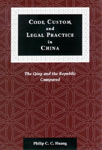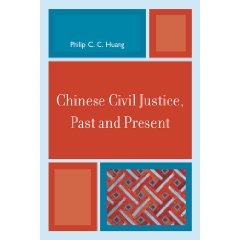Philip C.C. Huang and Kathryn Bernhardt, editors
Advisory Board
William P. Alford, William T. Rowe, Hugh Scogin, Jr., Jonathan Spence, Alexander Woodside
The opening of archives on legal case records and judicial administration in China has made possible a new examination of past assumptions about the Chinese justice system. Scholars can now ask where actual legal practice deviated from official and popular conceptualizations and depictions. In the process, they can arrive at a new understanding not only of the legal system, but of state-society relations and the nature of the Chinese social-political system as a whole. Studies of Chinese justice also permit the joining together of social and cultural history. Historians of society and economy, on the one hand, and of mentalities and culture, on the other, have long tended to go their separate ways. Law, however, is a sphere of life in which the two are inseparable. Legal case records contain evidence for both practice and representation. A study of law can tell us about the interconnections between actions and attitudes in ways that segmented studies of each cannot.
This series comprises major new studies by the editors themselves, as well as other contributions from a new generation of scholarship, grounded both in the archives and in new theoretical approaches.










